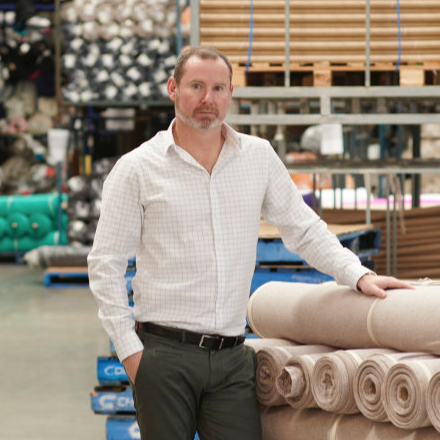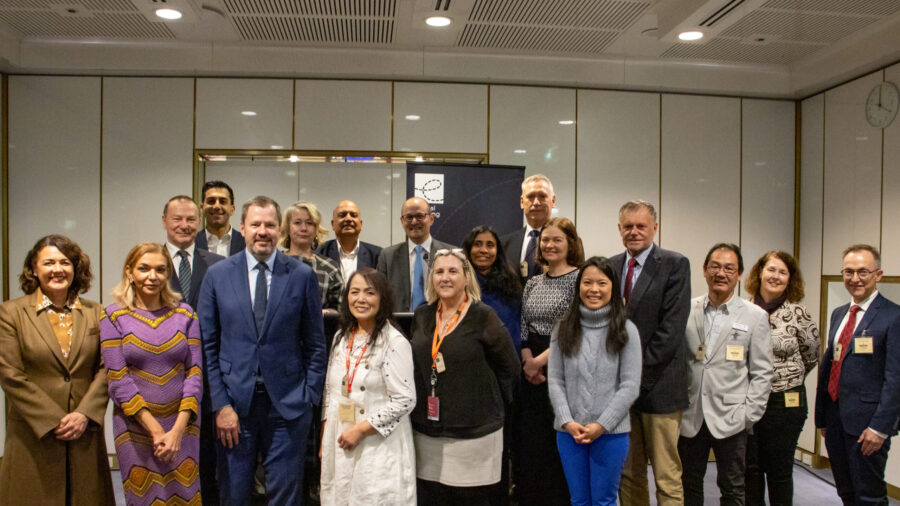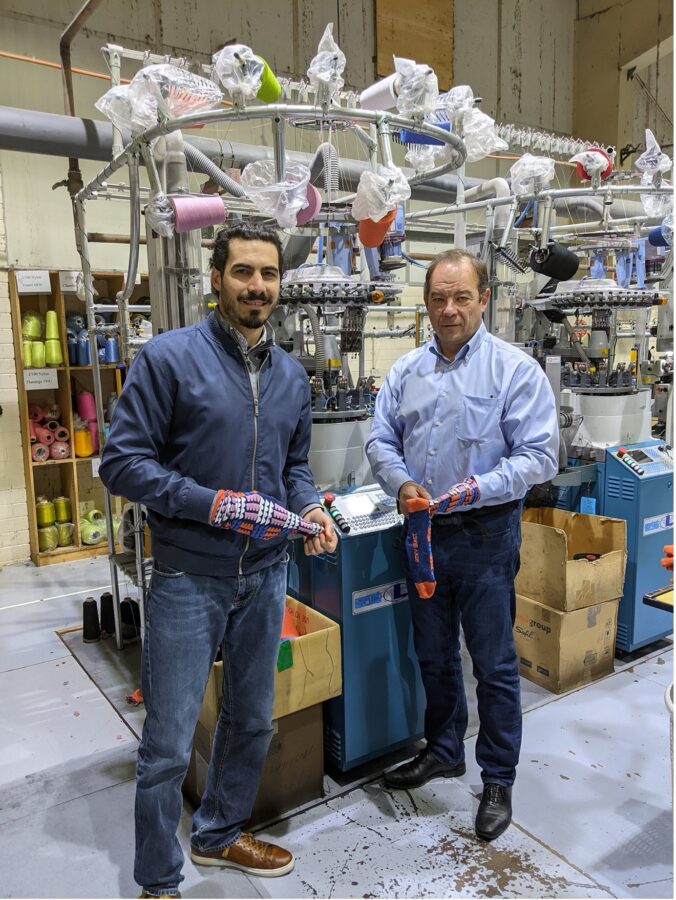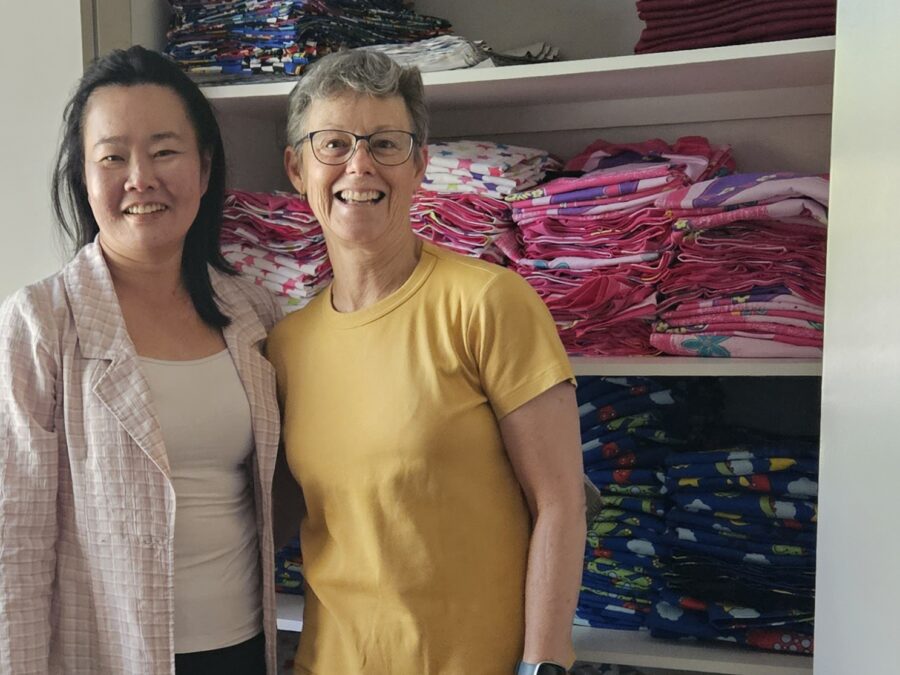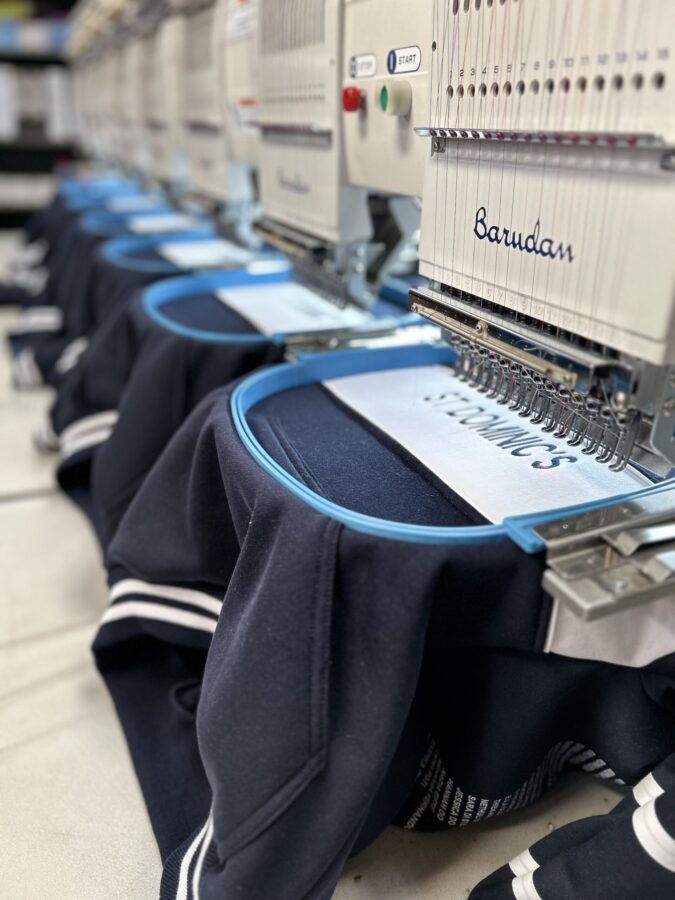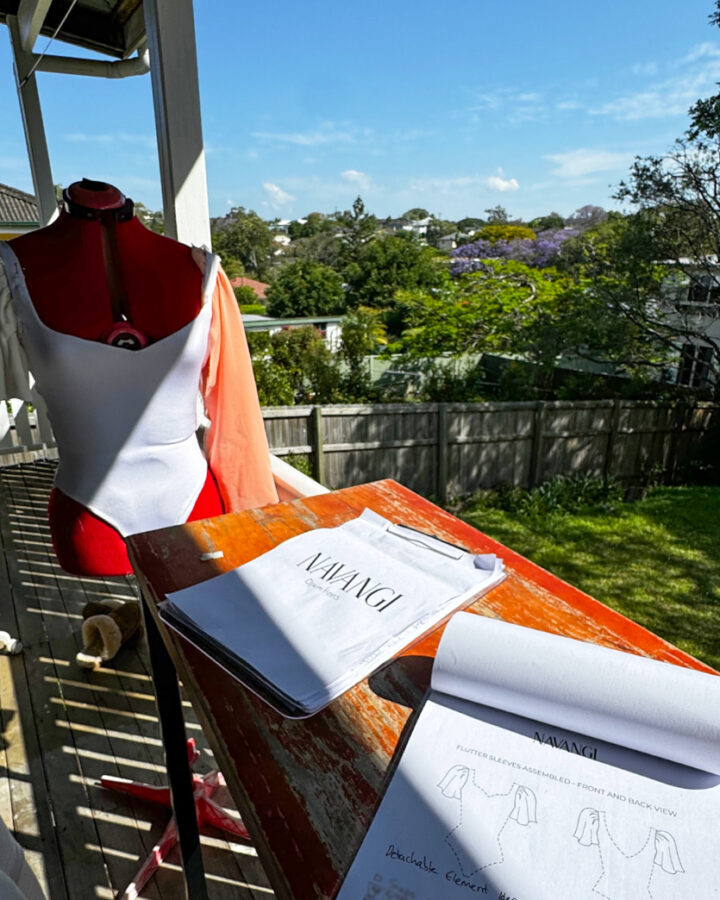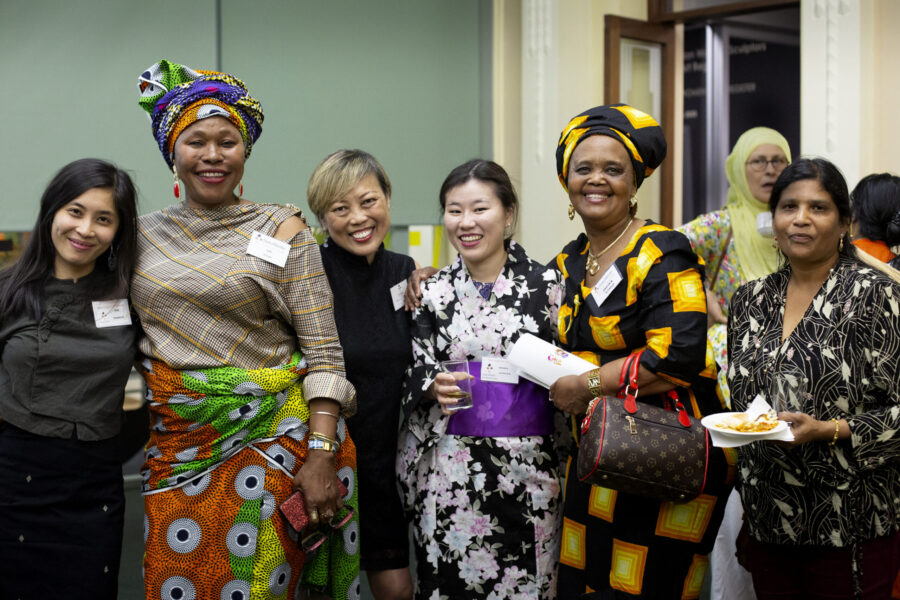Ethical Clothing Australia Week 2024 – Sydney Event
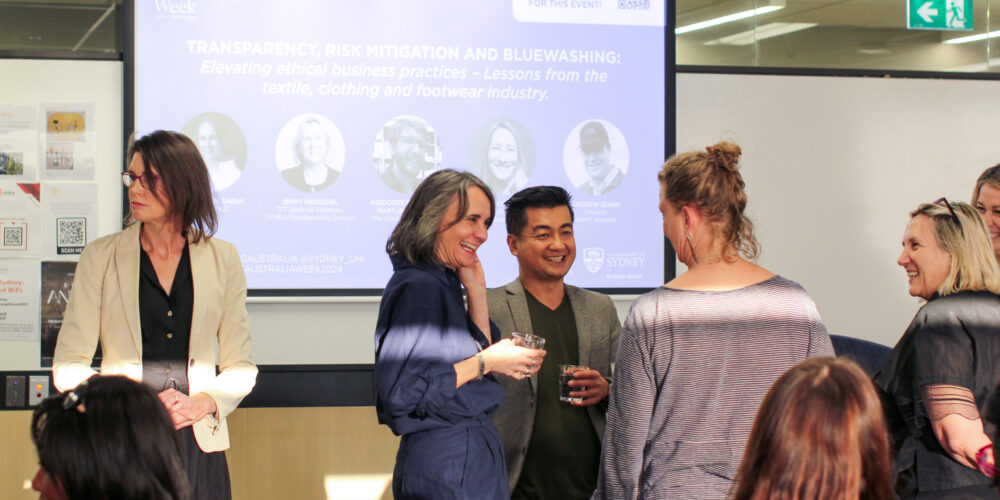
Event
Rachel Reilly, Ethical Clothing Australia’s National Manager addressing guests at Ethical Clothing Australia Week 2024 panel event in Sydney
Five Key Messages We’re Taking Away from our Sydney Panel Event
On Thursday 10 October, as part of Ethical Clothing Australia Week 2024, we co-hosted a panel discussion with University of Sydney’s Modern Slavery Unit and the Business School’s MBA Dimensions Program on ‘Transparency, risk mitigation and bluewashing: Elevating ethical business practices – Lessons from the textile, clothing and footwear industry.’We were joined by an accomplished panel of experts including the Hon. Dr Sarah Kaine MLC, Jenny Kruschel (TCF National Secretary, CFMEU Manufacturing Division), Associate Professor Martijn Boersma (The University of Sydney), Carolyn Kitto OAM (Co-Director, Be Slavery Free) and Andrew Quinn (General Manager, ABMT Apparel).
Heather Chai, Director of the Modern Slavery Unit at The University of Sydney
Moderated by Heather Chai, Director of the Modern Slavery Unit at The University of Sydney, the panel discussion opened up with special remarks from Ethical Clothing Australia National Manager, Rachel Reilly.
A dynamic discussion, here are 5 of the key messages we’re taking away from our recent panel event:...in humanising our local workers and their experiences, we really aim to compel people to make ethical choices when it comes to their purchasing practices. I think it's fair to say that we all have a role to play in ending exploitation in our local TCF industry. The Ethical Clothing Australia Accreditation Program provides clear and simple guidance on how you can help in addressing exploitation.
– Rachel Reilly, Ethical Clothing Australia National Manager
Jenny Kruschel, TCF National Secretary CFMEU Manufacturing Division
1. Unions play a vital role in protecting workers
Eradicating the exploitation of local workers is a collective issue and unions play a critical role in giving workers a voice. It was also highlighted by Carolyn Kitto that “the research shows there’s a very clear correlation of the more unionised a country and a workforce is, the less modern slavery there is, and vice versa.” This demonstrates the powerful impact unions have on supply chain transparency.Can you imagine a worker on $24-25 an hour with insecure work going to the person who gives their boss work and making a complaint? It's just not credible. It's not realistic. It's not something a worker can do.
– Jenny Kruschel (TCF National Secretary, CFMEU, Manufacturing Division)
As expressed by Jenny Kruschel, “workers need a safe way and safe space to communicate their concerns” especially those of migrant backgrounds who require bilingual and proficient support. By deploying skilled organisers that know how to work with migrant workers, unions are able to advocate for their rights and solve issues while also protecting their privacy and workplace rights.
Top: Aldona Brangwin (Citizen Wolf), Nina Gbor, Eric Phu (Citizen Wolf), Rachel Reilly
Above: Associate Professor Martijn Boersma (The University of Sydney)
2. Modern Slavery Statements aren’t enough
Since Australia’s Commonwealth Modern Slavery Act was introduced in 2018, larger organisations are now required to report annually through their Modern Slavery Statement. This statement shares what they’re doing to identify and combat modern slavery risks.However, we’re now seeing a move towards human rights due diligence, where companies must go beyond just reporting on risk and move towards respecting human rights. To address exploitation, it’s vital that businesses are not only aware of the risks in supply chains, but must take systematic and proactive action to address these risks.
...if you've taken this seriously, and you don't just create some sort of good news report as a modern slavery statement, but if as a business, as an organisation, you've really tried to map risks and put in place policies and procedures to address those risks in a proactive way, then you're well on the way to dealing with the sort of due diligence question…
– Associate Professor Martijn Boersma (The University of Sydney)
Carolyn Kitto OAM (Co-Director, Be Slavery Free)
3. Consumers play an important role in ending modern slavery
While ending modern slavery isn’t an individual problem to solve, Carolyn Kitto OAM (Co-Director, Be Slavery Free) commented that consumer sentiment plays a crucial role in raising awareness around slavery and workplace exploitation, as it helps drive demand for ethical practices. Be Slavery Free conducted a survey last year on consumer attitudes to modern slavery and “around 70 per cent of Australians believed that they had probably purchased a good that was made with forced labour or modern slavery.”Although this is a progressive leap in consumer awareness, Carolyn expressed that it’s still difficult for the consumer to actually know if an imported product is ‘slavery free’ despite its claims. To address this issue, she highlighted the government’s duty to reject imports that use modern slavery or forced labour, which in turn, supports consumers to make more ethical, local choices.
Andrew Quinn (General Manager, ABMT Apparel)
4. Government procurement can help support innovation
Government procurement has a massive economic footprint of about 42 billion dollars per year. According to Andrew Quinn (General Manager, ABMT Apparel), government procurement is the “only part of the whole industry that can give us some certainty around manufacturing.” It’s this certainty that gives businesses the opportunity to “invest in machinery, staff training, our facilities, knowing that work is coming.”To support the local TCF industry, the panel agreed that government procurement should preference local businesses that are prepared to go through the ethical accreditation process. This would demonstrate the government’s commitment to eradicate the exploitation of workers within Australia and also provide benefits to those doing the right thing.
However, a key challenge is solving how local and smaller suppliers can fulfil larger requirements when they don’t have the capacity. A notable suggestion was to break down projects into more achievable parts, which would allow for local organisations to receive contracts while also providing them with an opportunity to sustainably scale for future work.
By considering ethically accredited businesses of all sizes for government procurement opportunities, we can create a more vibrant and diverse industry that ensures everyone gets a fair go.
The Hon. Dr. Sarah Kaine MLC
5. The value of transparent supply chains
The Hon. Dr. Sarah Kaine MLC spoke briefly about the New South Wales Ethical Clothing Extended Responsibility Scheme which was a regulation established in 2005. This regulatory framework was innovative for its time and strived to bring transparency across the clothing and textile supply chain in New South Wales. This was a piece of co-regulation with the TCF union which meant that “organisations at the top of the supply chain were required to report on all of the activities down their supply chain when they purchased textiles and other clothing.”This scheme was the subject of a recent NSW Parliament Modern Slavery Committee Inquiry. The Committee found there is still a lot of value in the Scheme due to its level of granularity and transparency, ensuring the lawful treatment and protection of workers and recommended that the Scheme be re–operationalised. We’d like to extend our thanks to our esteemed speakers for sharing their knowledge and insights, and to our guests who attended our Sydney Panel Event.It was the first of its kind, and it meant that both the government of the day, but also the union knew exactly where workers were, where they were actually sitting at their machines, doing their work. And that is really significant in terms of trying to ensure that workers are treated well. So that was a really revolutionary piece of regulation…
– The Hon. Dr Sarah Kaine (MLC)
Ethical Clothing Australia Week 2024 has been made possible due to a grant from the Australian Government Department of Industry, Science and Resources and a grant from the Victorian Government Department of Jobs, Skills, Industry and Regions. We are grateful for the continued support of Ethical Clothing Australia.
To find out more about Ethical Clothing Australia’s upcoming events, be sure to subscribe to our newsletter and follow us on Instagram, Facebook and LinkedIn.
Related articles
Explore more insights, updates and stories from across Australia’s ethical and local manufacturing industry.

